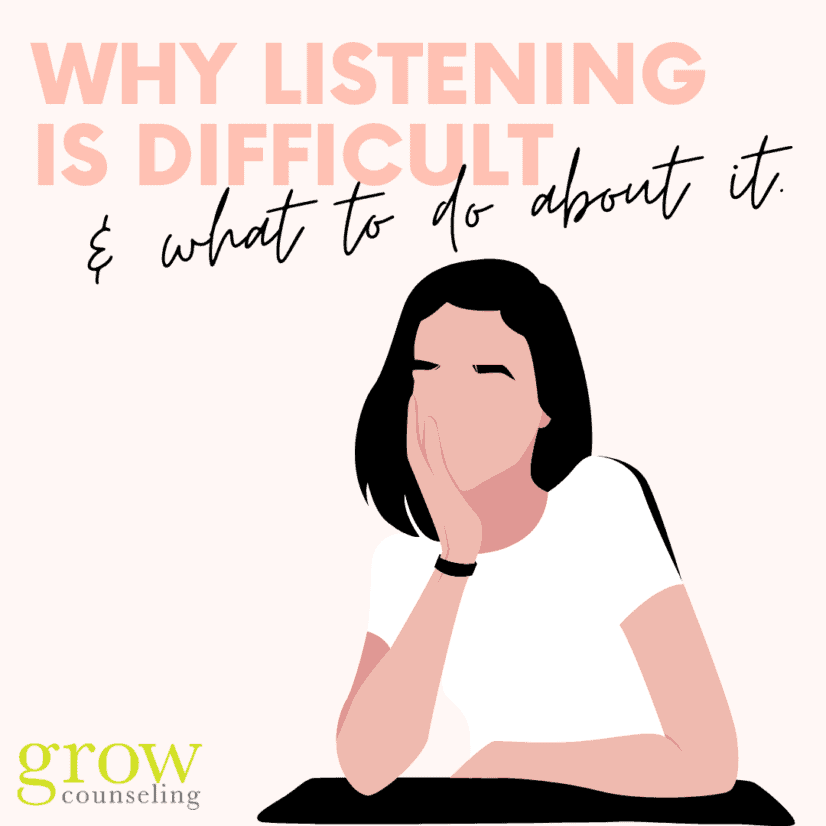Have you ever been in a conversation that went like this?
“You always do this when I talk and what I need from you is to listen. You are never there for me when I need you and that is how I know you don’t really care about me at all.”
Listening is difficult, and there’s a good reason why.
Our brains are wired to be on the lookout for potential threats to keep us from danger. Whether you are the one doing the speaking or listening, if you are involved in a conversation like the one above, researchers have found that it can set off alarm bells in your amygdala.
In these moments, it can be useful to know what to do or how to calm things down. In the book, 12 Rules for Life Dr. Jordan Peterson describes a strategy for listening posed by Carl Rogers in “Rule 9: Assume that the person you are listening to might know something you don’t.”
“The great majority of us cannot listen we find ourselves compelled to evaluate because listening is too dangerous. The first requirement is courage. We do not always have it. He [Rogers] knew that listening can transform people. On that Rogers commented, “some of you may be feeling that you listen well to people and that you have never seen such results. The chances are very great indeed that you’re listening has not been of the type I have described.’”
Peterson challenges his readers to conduct Roger’s experiment with the next time they find themselves in an argument, to stop the discussion for a moment and institute this strategy.
“Each person can speak up for themselves ONLY after they have restated the ideas and feelings of the previous speaker accurately, and to that speaker’s satisfaction.”
There are some advantages and disadvantages when using the Rogerian method.
Let’s start first with the advantages:
- You genuinely come to understand what the person is saying
- It helps in the consolidation and utility of memory
- Makes it difficult to oversimplify, distort, or create strawman arguments when someone opposes you
The disadvantages:
- You run the risk of being changed yourself
- You might find yourself influenced in your attitudes or personality
Imagine using this strategy the next time you are in a disagreement. Do you think it would reduce conflict in your relationships? If so, ask yourself if it would improve your life enough to try?
Written by: Dustin Ellis

